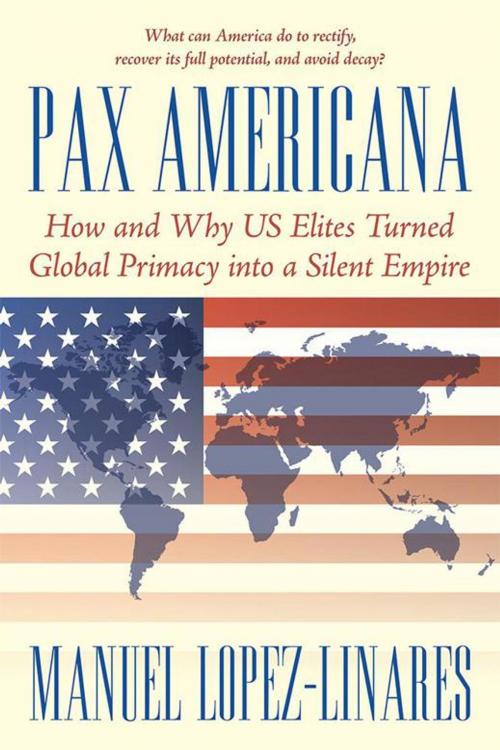Pax Americana
How and Why Us Elites Turned Global Primacy into a Silent Empire
Nonfiction, History, Modern, 20th Century, Americas, United States| Author: | Manuel Lopez-Linares | ISBN: | 9781491793947 |
| Publisher: | iUniverse | Publication: | April 29, 2016 |
| Imprint: | iUniverse | Language: | English |
| Author: | Manuel Lopez-Linares |
| ISBN: | 9781491793947 |
| Publisher: | iUniverse |
| Publication: | April 29, 2016 |
| Imprint: | iUniverse |
| Language: | English |
Pax Americana: How and Why US Elites Turned Global Primacy into a Silent Empire turns to the recently written pages of the history of the United States. Looking at them with a fresh perspective to test against the record of critics that claim the country has changed the character of its global involvement, Manuel Lpez-Linares explores how the United States has moved beyond its role as the primary force for doing good to building an empire to protect and extend its wealth and power.
In Pax Americana, the image of a shining city upon a hill, long a self-characterization of America, sets the stage for exploring the steps that have taken the United States down the road toward extending its grasp to secure its claims to the resources necessary to build, maintain, and extend a quiet empire with a globe-spanning presence. Turning to the period following World War II, a historical review of nine instances, beginning with Iran in 1953 and ending with Iraq in 2003, delineates the growing reach of Americas imperial tendencies. A chapter then explores the character of Americas elites who have influenced this series of developments. A philosophical exploration of the underpinnings of this history traces the causes and reasons for the decisions and actions the country has taken. A final chapter, Time to Recover, seeks to reclaim neglected strands of Americas heritageits political philosophy and its fundamental aspirations for freedom, dignity, and equalityand to urge the country to return to these roots.
Pax Americana: How and Why US Elites Turned Global Primacy into a Silent Empire turns to the recently written pages of the history of the United States. Looking at them with a fresh perspective to test against the record of critics that claim the country has changed the character of its global involvement, Manuel Lpez-Linares explores how the United States has moved beyond its role as the primary force for doing good to building an empire to protect and extend its wealth and power.
In Pax Americana, the image of a shining city upon a hill, long a self-characterization of America, sets the stage for exploring the steps that have taken the United States down the road toward extending its grasp to secure its claims to the resources necessary to build, maintain, and extend a quiet empire with a globe-spanning presence. Turning to the period following World War II, a historical review of nine instances, beginning with Iran in 1953 and ending with Iraq in 2003, delineates the growing reach of Americas imperial tendencies. A chapter then explores the character of Americas elites who have influenced this series of developments. A philosophical exploration of the underpinnings of this history traces the causes and reasons for the decisions and actions the country has taken. A final chapter, Time to Recover, seeks to reclaim neglected strands of Americas heritageits political philosophy and its fundamental aspirations for freedom, dignity, and equalityand to urge the country to return to these roots.















